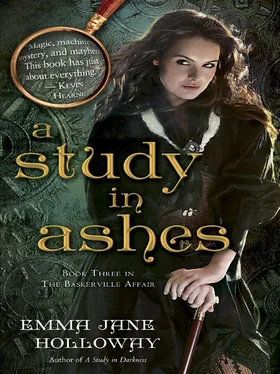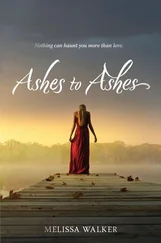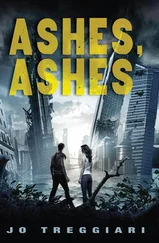But that was far from her only concern. Although there were no signs of damage here, there weren’t as many people on the street as there should have been. It felt as if London was holding its breath, waiting for the next assault.
“There’s Poland Street,” Alice said, pointing to the sign at the corner of a soot-stained brick apartment block. “It should be right down there.”
They were about to turn when Poppy caught her arm. “Wait!”
Alice let out a cry. Yellow flags hung from a dozen windows, fluttering in a halfhearted breeze. The signal was one Keating had borrowed from maritime conventions and instituted in his territories. Quarantine .
Alice began pelting down the street, her skirts flying out behind her. Poppy bolted after, running hard to catch up. “What are you doing? Have you lost your wits?”
“Maybe.” Alice stopped abruptly in front of a shabby-looking door, and Poppy nearly crashed into her. She was about to make some scathing remark about running headlong into contagion when she read the sign above the door: Beatrice Keating Memorial Foundling Hospital.
“Who was Beatrice?” Poppy asked.
“My grandmother,” Alice replied absently.
It was hard to imagine the Gold King having a mother, much less one he wanted to honor. But the matter quickly faded to unimportance when Poppy saw more yellow flags hanging from the windows above. The hospital was infected. Oh, no .
“What if it’s a trick?” Alice said hoarsely. “What if he’s made them say there is disease so that I won’t go in and find my son?”
What kind of a father is he that she can even think that? Poppy wondered, but she knew the answer. He was a steam baron. “You can’t go in.”
“I have to know.”
“What if you do, and then you find Jeremy later, and then you make him sick because you’re coming down with some fatal disease?”
Alice fell silent. Good . Poppy put a hand to her head, wishing her brain would work faster. “Let me think.”
“Let’s at least knock on the door,” Alice suggested. “Surely we can ask some questions.”
“All right.” Poppy crouched, scrabbled in the dirt for some pebbles, and stood, trying to ignore the dirt clinging to her gloves. She tossed a pebble at the window, then another. Both smacked with a satisfying clack against the glass. It didn’t take long before the sash next to Poppy’s target slid up.
The woman who leaned out was terrifying—square, stern, and looking as if she was in severe want of ears to wash. “What is the meaning of this?”
Poppy heard the distant spatter of what might have been gunshot. Her entire body went cold and she searched frantically in the direction of the noise—but she couldn’t see that far with all the buildings in the way. A wail of terror sounded deep inside her, but she bottled it up as tightly as she could manage.
“Well?” the woman demanded.
Poppy glanced at Alice, but the young woman looked about to cry. It was up to her. “Have you received any babies in the past eight days? A boy about seven months old.”
The gunshot sound repeated, and she began shifting from foot to foot, anxious to be gone. The shots had been closer this time. And somewhere inside the building a baby started to cry—a weak, frail squalling like the mew of a kitten. Poppy took Alice’s arm, and felt her tremble.
“There is cholera here,” said the woman severely. “No one enters or leaves, not for two weeks. Now leave before you come down with it yourself.”
The window slammed shut, leaving Poppy and Alice standing in the dusty street. A sound came out of Poppy’s mouth, somewhere between a curse and a cry of frustration. It matched the feeling bubbling along her nerves. They’d achieved exactly nothing.
Not sure what else to do, Poppy grasped Alice’s hand and led her away, taking the shortest road she could find back to Regent Street. They moved quickly, all too aware of the growing sounds of fighting to the east.
“I think she’s telling the truth,” Poppy said.
“I do, too,” Alice said in a wavering voice. “Look over there.”
Between the buildings, Poppy could see men digging in a yard. There were three of them, and it was going to be a very large hole. “What are they doing?”
Alice swallowed hard, and the next words were stronger. “It’s going to be a lime pit. They shouldn’t be digging it this close to the houses. Papa’s going to be furious.”
A lime pit was for burying masses of bodies, which meant the cholera was real. Her stomach skittered with chill terror and she ran a few steps, as if a yard or two would make any kind of difference.
Alice caught up, her eyes wide. “What now?”
“Does your father own any other foundling hospitals?”
“No. Charity work isn’t a large part of his business.”
That Poppy could believe. The streets around them were growing steadily worse, without even the pretense of respectability. “So where else can he hide a baby?” Poppy saw the broader, brighter expanse of Regent Street ahead and nearly broke into a run. “You said there were two possible places.”
“There are a thousand places,” Alice said, despair creeping into her voice. “I can’t keep dragging you across London like this. Not without a better chance of success and a lot less danger.”
“Don’t worry about me,” Poppy said, almost automatically.
“But I have to.”
“I can worry about myself well enough.”
“Poppy, think. We’re only theorizing about what Father has done. We have no facts.” Alice looked guilty and miserable. No doubt her heart was dragging her forward, but her common sense was reining her back. “You need to go home. I’ll keep looking.”
Gunfire cracked again. A flock of enormous black birds flew overhead, croaking like doom. Both women looked up, momentarily startled, but the birds passed by.
“But your theories are good,” Poppy protested, refusing to give up. There was no way she would let Alice go on without her. “We’re looking for your father’s property, or at least within his territory. He needs to hide a baby and a nurse someplace they won’t be noticed. Where is the other place you came up with? Does he have a home for unwed mothers?”
“No, but he has a rooming house in Covent Garden where a lot of actresses live.” Alice’s cheeks flushed and she looked away. “He thinks I don’t know about it, but he used to keep a mistress there.”
“Then we try that,” said Poppy. “It can’t hurt, and it has to be nicer than this place.”
“Are you sure about that?” Alice said sharply. “Be sensible. Covent Garden is due east.” But Alice’s words didn’t match the look in her eyes. She was pleading to go.
East was right into the gunfire. Poppy grimaced, wishing she could give in to the terrified wailing insider her—but she just couldn’t. “But what if we’re right, and Jeremy is there?”
London, October 16, 1889
THREADNEEDLE STREET
10:35 a.m. Wednesday
THE CATERPILLAR CRAWLED DOWN THREADNEEDLE STREET, surrounded by a human sea. The air smelled of river and ash and the press of lost humanity, as if the Styx had emptied onto the London streets and this was the new land of the dead. And the throng only grew, gathering more and more bodies as they progressed. Volunteers arrived out of alleyways and taverns, or were simply swept up like flotsam from the curbs. They marched or ambled; some brought weapons and others beer. Moore and the other professionals kept order, but there was hardly any need. All were unified by a cheer distilled from reckless despair.
From atop the caterpillar, Tobias could see the devastation left from the bombs and the subsequent conflagration. It might have been a week ago, but the scars were still fresh. Blackened smears of ash were all that remained of shops and homes. Where the Bank of Empire had once stood, a choking black smoke rose from a crater the size of a battleship. All around, shards of stone thrust into the air, snaggletoothed remains of the Green Queen’s stately counting houses.
Читать дальше








